
Hot, Hot, Hot: Tips for Running in Summer Heat
Summer weather is officially here. For those who are beginner runners, the first few days of intense summer heat can be a challenge. But learning to run in the heat is an important part of training — it ensures you don’t have to take time off or lose progress, and by the time cooler temps arrive in the fall, you’ll be a much stronger runner who finds it way easy to go faster and farther in milder weather.
That said, running in the heat can be uncomfortable and downright dangerous if you aren’t careful. Here are a few important tips for learning to run in the heat (be sure to pay attention to that last one about checking with your doctor — that one is especially important).
Avoid Peak Times of the Day
Run either very early or very late in the day when the temperatures are at their lowest. You can even try running after sunset or before sunrise if you live in an area where it’s safe to do so and it works with your schedule. Whatever you do, avoid running in the middle of the afternoon when temperatures are at their peak.
Check the Weather Before You Go Out
Heat is one thing — extreme heat is another. If the temperatures are in the triple digits, or they will likely rise to that point over the course of your run, you’re better off staying inside on the treadmill or skipping your run on these days. Even on days when the temperatures are hot but not extreme, it’s wise to adjust your workout. High-intensity sprints or long-distance runs should be saved for days when it’s milder, and you should take it easy on days when it’s in the 80s and 90s.
Humidity can be just as dangerous as heat. If the humidity is above 70%, your sweat won’t evaporate off your skin and your body will have a harder time regulating its temperature. This can cause you to overheat very quickly.
Hydrate, Hydrate, Hydrate
Consuming plenty of water should be a priority for every runner, but this is especially true during the summer. Being properly hydrated will make it easier for your body to regulate temperature, and you need to replace the fluid you lose when you sweat. Opt for cold water when possible, as this will help lower your core body temperature. Aim to get plenty of electrolytes (magnesium, potassium, calcium, and sodium) in your diet, because these minerals are important for vital functions and are lost through sweat. Ideally, have some fluid every 20 minutes when you’re undertaking a workout that makes you sweat profusely.
Opt for Shade and Green Surroundings
Seek out running routes that offer shade and aren’t directly under the hot sun. It’s ideal if you can find a place away from asphalt and concrete, which absorb heat. Run through a park or wooded area instead — even if the trail you’re running on is paved, having grass and trees on both sides of you instead of the street will reduce the temperature.
Dress Appropriately
Wear workout attire that is lightweight and light in color, ideally made from a wicking material that won’t dampen with too much sweat. Your workout attire should be loose enough to promote some airflow, and your sleeves and inseam should be on the shorter side to give more of your skin enough room to breathe
Recognize the Signs of Heat Exhaustion and Heat Stroke
If you’re going too hard when it’s too hot, you put yourself at risk. When symptoms of heat exhaustion or heat stroke manifest, stop! Heat exhaustion and heat stroke aren’t related to your level of hydration, so even if you’ve consumed plenty of water, you could still get sick. Symptoms include lightheadedness and disorientation, lack of sweating (even when it’s really hot), goosebumps or chills, and clammy skin. If you’re experiencing heat exhaustion, cease exercising and move to a cooler location where you can rest and consume fluids. If your symptoms don’t improve within an hour, you may be suffering heat stroke — seek medical attention immediately.
Don’t Be Afraid to Cross Train
There are going to be some days when it’s simply too hot to run — and that’s all right! Think of this as a good excuse for you to cross train and find another mode of cardio that you really enjoy. Cycling gives you a nice breeze because you move so quickly, so it’s easier to do in extreme heat. You can also try swimming laps in cool water, which will not only feel refreshing but also give you a great upper-body workout.
Talk to Your Doctor Before Exercising in the Heat
You’re probably safe and healthy, but just as a precaution, it never hurts to get your good ol’ doc’s permission first. People with heart conditions or breathing conditions have a harder time functioning in extreme weather, putting them at increased risk. Your doctor can ensure you’re not in that category and can give you specific recommendations for exercise in the heat based on your age, weight, gender and general health.

Dylan Roche
is an Annapolis-based writer and marathon runner. As a journalist focused on everything from fitness to arts and culture, he has written for a variety of publications, including Livestrong, What’s Up Annapolis, OurHealth Virginia, UpstART and Chesapeake Family Life. His first novel, “The Purple Bird,” came out in 2019. Follow him on Twitter and Instagram at @DylanIsWriting
Recent Blog Posts
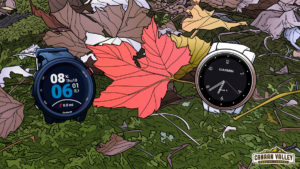
Garmin Vivioactive 4 vs Forerunner 245
Garmin Forerunner 245 vs. Vivoactive 4 About 21% of Americans use a smartwatch or fitness tracker, but not all models stack up to one another.
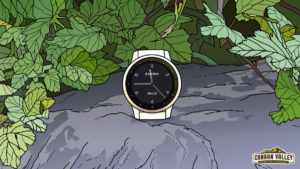
Garmin Vivioactive 4 Review
Garmin Vivioactive 4 Garmin Overview Before we dive into the Vivioactive 4 Review, what do you need to know about Garmin as a company?
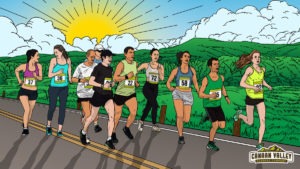
13.1 Reasons to Run a Half Marathon
13.1 Reasons to Run a Half Marathon Running a half marathon is both a physical and mental challenge. Physically, there are hours of training that
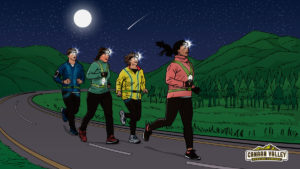
Running At Night is Awesome: 10 Tricks and Tips
10 Tricks and Tips for Running at Night With the days getting shorter and darker, you might wonder how to squeeze your run in during
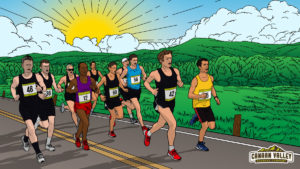
Why Is A Marathon 26.2 Miles?
Why Is a Marathon 26.2 Miles? For many long-distance runners, the marathon is the ultimate goal. Whether you simply want to complete a marathon or
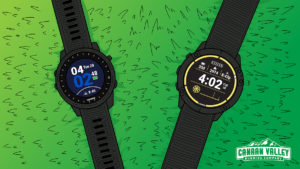
Garmin Enduro vs Forerunner 945
Garmin Enduro vs Forerunner 945 Are you an athlete or outdoor enthusiast looking for a smartwatch to track your progress? You can count on Garmin
